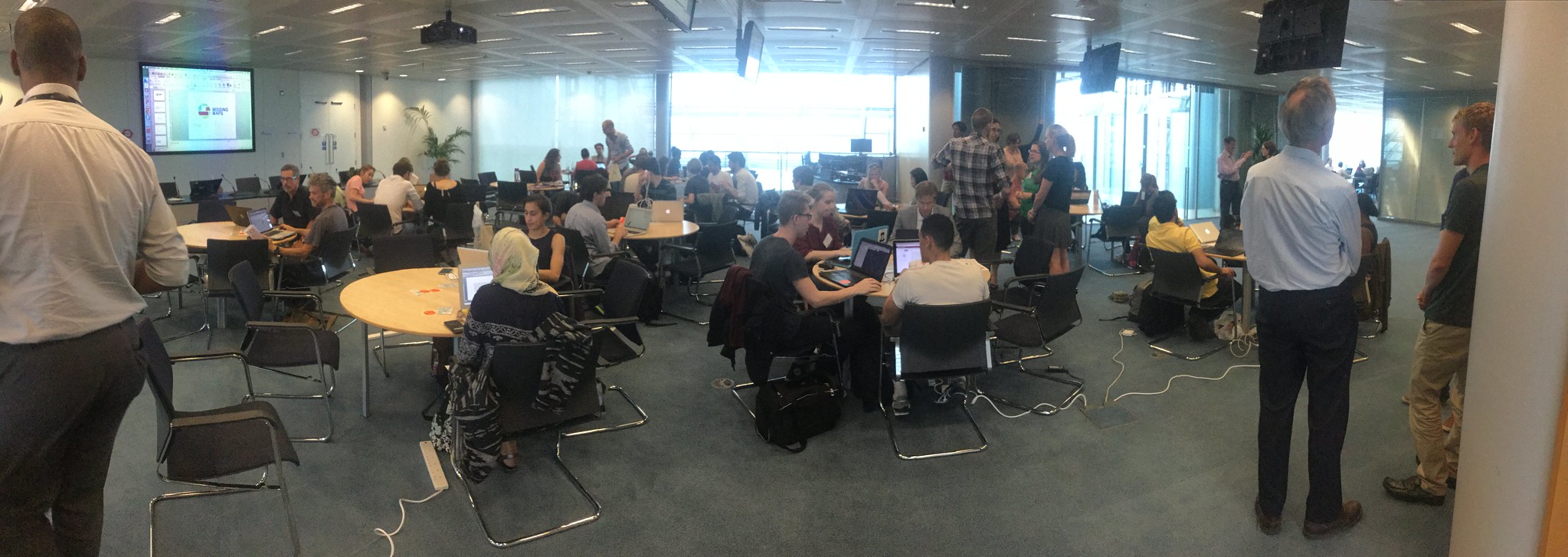HOT validation as prerequisite for community growth?
Posted by dekstop on 6 August 2015 in English. Last updated on 9 August 2015.In a response to an acute shortage of validators, Missing Maps in London are now training people up at their monthly events: first to learn JOSM, then validation. I think that’s great! It’s particularly fitting that validators are trained from the same volunteer pool as new HOT contributors. That way, at least in principle, their numbers can grow together. While currently validation is often on the shoulders of a few expert insiders, in this new model it instead can become an important training aspect for larger numbers of highly engaged HOT contributors. Becoming a validator could be an important rite of passage for certain new contributors.
It’s good that validation in particular is now being taken so seriously. It enacts an important process by which the OSM community can manage the growing flood of incoming contributions. Unchecked floods of contributions are likely harmful in the long run: to the quality of the map, and to OSM maintainer morale. As Elinor Ostrom demonstrated: such shared limited resources need to be managed and defended by its beneficiaries.
I think validation also fulfils an important social role for newcomers: it can provide encouraging feedback and useful training experiences, and in the beginning these exchanges may be quite impactful. Maybe most importantly, validation provides a rare opportunity for a contextual social encounter. It’s a perfect opportunity to catch first-time contributors for a chat, without requiring them to subscribe to a mailing list or join IRC first. It’s a form of socialisation: the teaching of techniques and community norms.
Any such validation process however must acknowledge the scale of the challenge: that most HOT contributors likely ever only contribute little, and may never return. The first encounter should be brief yet impactful, and most importantly it must be repeatable at large scale. Thousands, and maybe soon millions of times.
It must also be noted that validation is not (yet) a well-defined practice, and instead often depends on the interests and skills of the individual validator, and on how they were trained – just like any other OSM contribution. Everyone does it a little differently. I liked Lisa Marie Owen’s recent diary entry on her global validation procedure, with good discussions in the comments; there are likely many other examples.
I wonder if there’s also an opportunity to create validator networks: online or offline places where validating users can meet with other domain experts, where norms can be clarified and negotiated, and where contributors can hang out and bond. IRC channels, Facebook groups, mailing lists, meetups, … whatever may be practical. Maybe there’s already an existing space in the OSM or HOT universe where we could send new validators?

Discussion